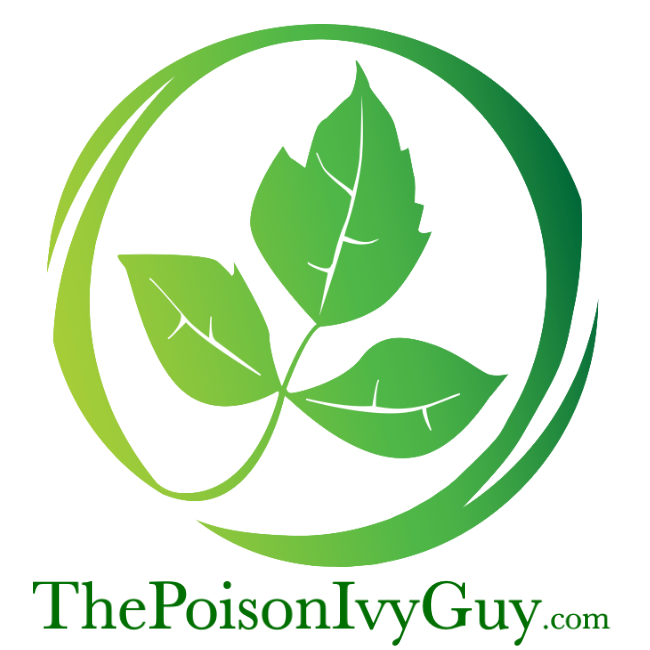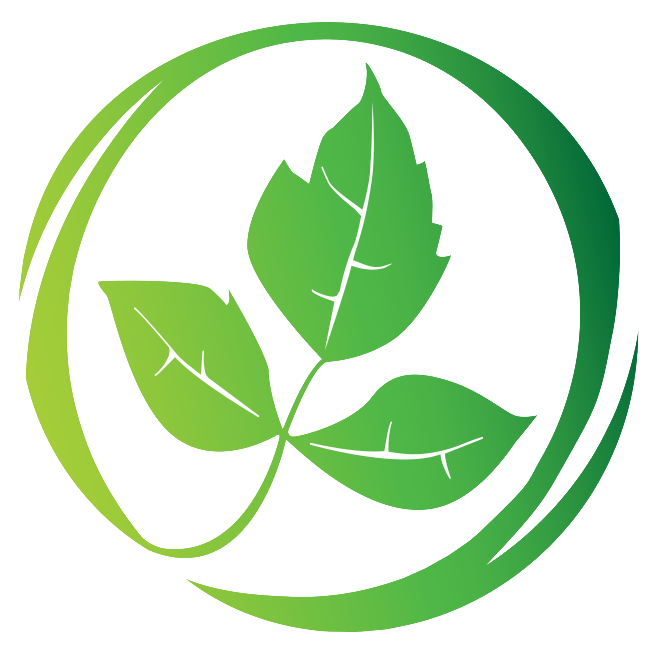FAQ's
What is poison ivy, and why is it dangerous?
Poison ivy (Toxicodendron radicans) is a plant that produces an oily resin called urushiol, which can trigger severe allergic reactions upon skin contact. The resulting rash can vary from mild irritation to painful blisters, depending on a person's sensitivity. Poison ivy is commonly found in outdoor areas such as yards, gardens, and forests, posing a risk to those who come into contact with it. Approximately 85% of people are at risk of developing a reaction to this plant.
How can I identify poison ivy?
Poison ivy has compound leaves with three leaflets on a smooth stem. The leaves can vary in size (up to 8-9") and shape (pointed oval to long and thin), with edges that are smooth or randomaly toothed or jagged. They will not have regularly toothed edges on all the leaves (like a saw).
There are a pair of leaflets opposite each other that may or may not be miror images, a short extension and the 3rd leaflet. They alternate along the vine.
When they first emerge in spring, the leaves are red but quickly change to shades of reddish-green then to light or deep green. Their texture can range from shiny to satin-like or flat. In the fall, the leaves typically turn red or yellow.
Poison ivy grows in various forms, including as a vine, shrub, or ground cover. The saying "leaves of three, let it be" is a common guideline for identifying poison ivy or poison oak. However, other plants may look similar, so it’s best to have a professional evaluate your property for accurate identification.
How do I know if I have poison ivy on my property?
If you’re unsure whether poison ivy is present in your yard, it’s a good idea to have a professional evaluate the property. Poison ivy often blends in with other plants, especially during its early growth stages. Our team will conduct a detailed inspection to locate all areas where poison ivy may be hiding and provide you with a mapped overview for reference.
Can I remove poison ivy myself?
While you can attempt to handle poison ivy yourself, it is strongly discouraged due to the risks of exposure to urushiol oil. The oil can remain active on clothing, tools, and surfaces, and improper removal methods can spread the oil or disturb the plant in ways that encourage further growth and future irritation. Professional poison ivy eradication guarantees safe and effective treatment, ensuring that your property is free of poison ivy.
How do we eradicate poison ivy?
We are licensed by Massachusetts to apply EPA approved herbicides for the eradication of poison ivy and other undesirable or invasive plants including Japanese knotweed anywhere in the state.
We are fully insured with both General Liability and Workman's Compensation.
Get In Touch
67 Shrewsbury Street, Boylston, Massachusetts 01505, United States
We are affiliated with Cooper's Poison Ivy Eradication Service and with our colleagues serve all of Massachusetts — fastest response via this form.
We will send a detailed email with information on what we do, how and when, with answers to most of the questions we've been asked over the years plus pricing and scheduling information.
After reading it, reply to the email requesting the Educational Site Visit, and we'll put you in the queue for scheduling.


